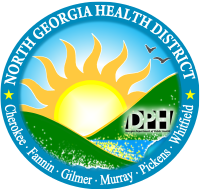Preteens Need to Stay Up to Date on All Recommended Vaccines
Ver opción en Español en la parte superior de esta página
The Georgia Preteen Vaccine Awareness Week is an annual observance aimed to help raise awareness and encourage preteens to make smart, healthy choices including defending themselves against vaccine-preventable diseases. Georgia Preteen Vaccine Awareness Week is an opportunity to raise awareness through schools, health care providers and the media about preteen immunizations, particularly Georgia’s pertussis and meningococcal requirements for incoming seventh-grade students.
CDC’s Advisory Committee on Immunization Practices (ACIP) recommends that 11 and 12-year- olds receive Tdap, MenACWY, HPV vaccine, and an annual flu vaccine. Some preteens may also need to catch up on other immunizations, including chickenpox, MMR (measles, mumps, rubella), hepatitis B, and COVID-19.
In an effort to keep every adult and child safe, please join the Georgia Department of Public Health in recognizing March 13-17, 2023, as Georgia Preteen Vaccine Awareness Week. This week serves as a reminder for parents to talk with their preteens and teens about getting immunized against vaccine-preventable diseases.
Facts About Preteen Vaccine and Awareness for Georgians
- Getting shots may sting a little, but it is much better than getting sick. Immunizations will help you stay healthy so you can do the things you love instead of being sick in bed.
- It is very important for you to get your shots because you can spread diseases to others, even before you feel sick. If you get your shots, you will also help keep your friends, family, and school healthy.
- Vaccines are available at our Public Health Departments in Cherokee, Fannin, Gilmer, Murray, Pickens, and Whitfield counties.
For parents:
- CDC’s Advisory Committee on Immunization Practices currently recommends that 11- and 12-year-olds receive HPV vaccine (2 doses), Tdap, meningococcal conjugate (MenACWY) and seasonal flu vaccines. Some preteens may also need to catch up on other immunizations as well.
- CDC’s Advisory Committee on Immunization Practices currently recommends COVID-19 vaccination for everyone 6 months and older. Learn more about protecting your preteen and teen against COVID-19 at COVID-19 Vaccines for Children and Teens | CDC.
 All students born on or after January 1, 2002, and entering or transferring into seventh grade and any new entrant into eighth through 12th grades, in Georgia must provide proof of an adolescent pertussis (whooping cough) booster vaccination (called “Tdap”) and an adolescent meningococcal conjugate vaccination (MenACWY).
All students born on or after January 1, 2002, and entering or transferring into seventh grade and any new entrant into eighth through 12th grades, in Georgia must provide proof of an adolescent pertussis (whooping cough) booster vaccination (called “Tdap”) and an adolescent meningococcal conjugate vaccination (MenACWY).- Effective July 1, 2021, children sixteen years of age and older who are attending eleventh grade must receive a booster dose of meningococcal conjugate vaccine, unless their initial dose was administered on or after their sixteenth birthday.
- Proof of both vaccinations must be documented on the Georgia Immunization Certificate (Form 3231).
- Teens and preteens see their doctors less often than any other age group, so physicians have fewer opportunities to counsel parents on the recommended immunizations for older children.
- By the time your child becomes a preteen, their childhood vaccinations are already wearing off, putting them at risk for potentially life-threatening diseases.
- Immunization is one of the most effective ways to protect teens against many common infectious diseases, including HPV, meningococcal disease, influenza and Tdap (Tetanus, Diphtheria and Pertussis).
- Keeping your preteen healthier through immunizations results in lower associated social and financial costs for families, including time lost from school and after school activities, as well as the expense of medical bills.
- This doctor visit is also a great opportunity for parents, preteens and health care providers to discuss the challenges of growing up, such as eating right, standing up to peer pressure, drugs and alcohol and any other concerns. If your child has not yet had a preteen check-up, give them a healthy start as an adolescent and make an appointment today!
- Promote preteens and teens immunization in your community or among your members with our resources that stress the importance and benefits of preteens and teens vaccines. Preteen and Teen Immunization Resources | CDC
- Digital and downloadable resources to help you promote COVID-19 vaccination for children and teens Resources to promote the COVID-19 vaccine for children and teens















